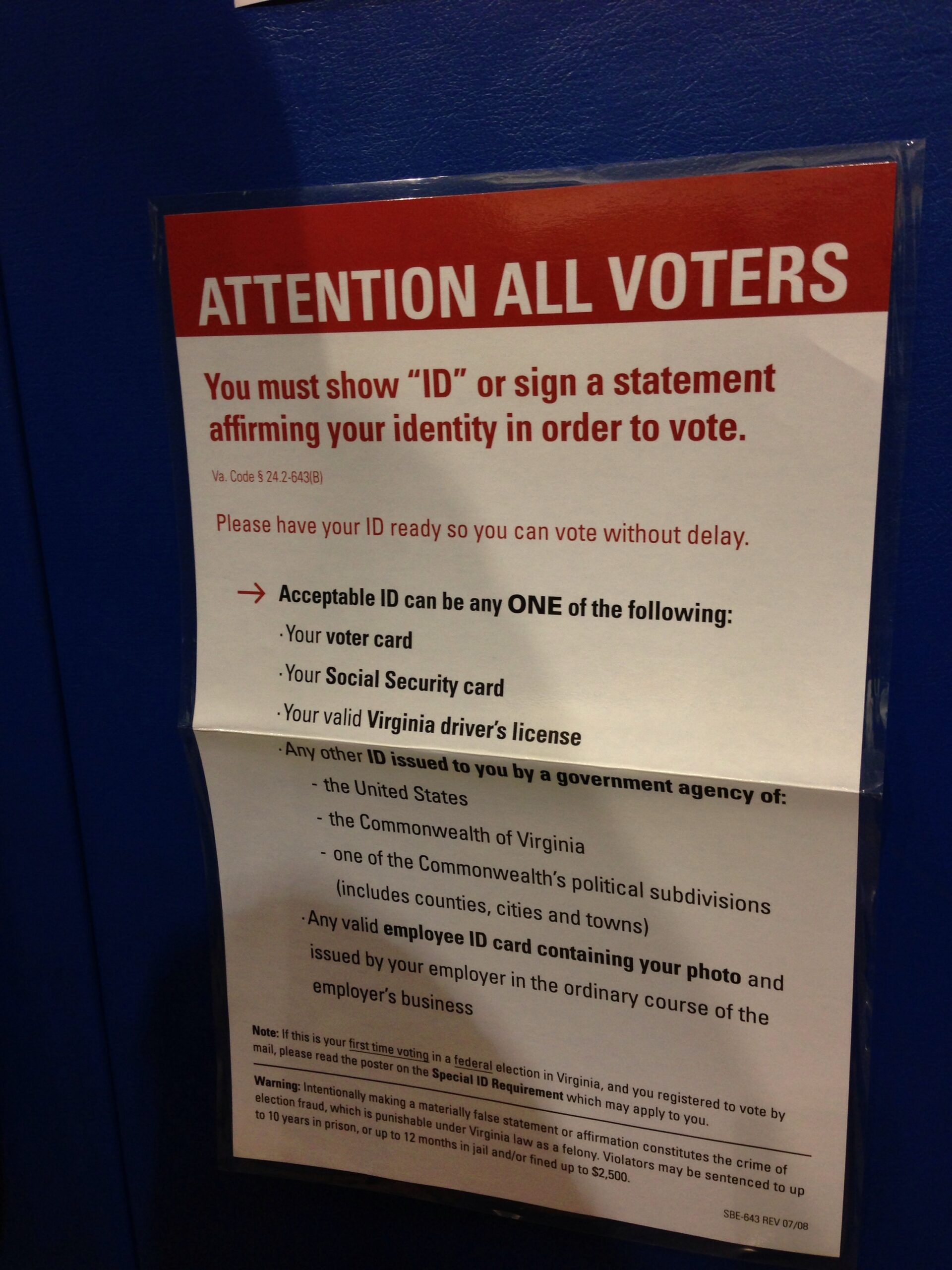Voter Identification laws are anti-democratic. Proponents of these laws, such as Heritage, argue that they’re needed to prevent voter fraud, which is just a bogus claim. They also routinely dismiss the impact of these laws on voter turnout, registration and access to the polls. Still, the standalone idea that elections in the United States should be safe and secure is noble enough. And the good thing is that they already are safe and secure. In fact, 2020 was one of the most secure elections in American history.
The Democratic Party (and historically the GOP before 2008) has long been known as the party of expanding voter rights, in contrast to the Republican Party. However, there’s been a recent embrace of voter ID laws by some Democratic politicians and even claims by pundits that such a move would hurt Republicans.
Before we proceed, allow me to tap the big, glowing, neon sign: Voter suppression is always bad and we should always fight against it.
The idea that these suppressive laws would prevent supposedly widespread voter fraud is so off-base. Here’s the reality: widespread voter fraud in the United States is as close to a non-issue as possible. As the Brennan Center notes, the amount of in-person voter impersonation is so infinitesimally small and as such, likely to have zero impact on national elections. To put a number on it, between 2000 and 2020, there were only 193 convictions of voter fraud. In the 2020 presidential election there were only 475 potential cases out of the 158,481,688 that turned out to the polls.
Now let’s talk about the actual process of obtaining an ID. In 2012, the Brennan Center looked at 10 states (Alabama, Georgia, Indiana, Kansas, Mississippi, Pennsylvania, South Carolina, Tennessee, Texas, and Wisconsin) with rigid voter ID requirements. To the credit of these state governments, these IDs were at least free to obtain. However, there were other major logistical issues. These included but were not limited to: not owning a vehicle to be able to travel to an ID issue office, being more than 10 miles away from an ID issuing office, and not being able to come during the office hours of these issuing offices. This leads to the disenfranchisement of predominantly low income voters, voters of color, and rural voters. There’s no reason for Democrats or any true believers of the promise of American democracy to support these laws.
We can trace the roots of voter ID laws and their resulting disenfranchisement back to the Jim Crow south. Prior to the passage of the 15th Amendment, which banned racialized voter disenfranchisement, measures such as poll taxes, literacy tests, and all white primaries prevented Black people from casting a ballot. While the Voting Rights Act and the 15th Amendment outlawed these practices, some of the vestiges of this bygone era like voter ID still exist. This desire to limit which Americans are free to readily participate in our democracy is an ongoing mission. And these laws allow believers of that mission to restrict Black Americans, Indigenous Americans, the elderly, rural voters, low income voters, and, again, women’s access to the polls. Many members of these communities simply do not have an acceptable form of ID for a multitude of reasons: lack of transportation, financial resources, or even the availability to obtain an ID. In fact Indigenous people born on reservations often lack the paperwork to obtain an ID to vote.
To give any credence to voter ID laws means to give credence to the canard of widespread voter fraud; a lie that has catapulted conspiracy theorists like Hans A. Von Spakowsky and Cleta Mitchell into right wing thought leaders. Democrats, and honestly Republicans too, should be contrasting themselves against such logistically nonsensical and hilariously bigoted election truthers, not implementing their policy recommendations.

